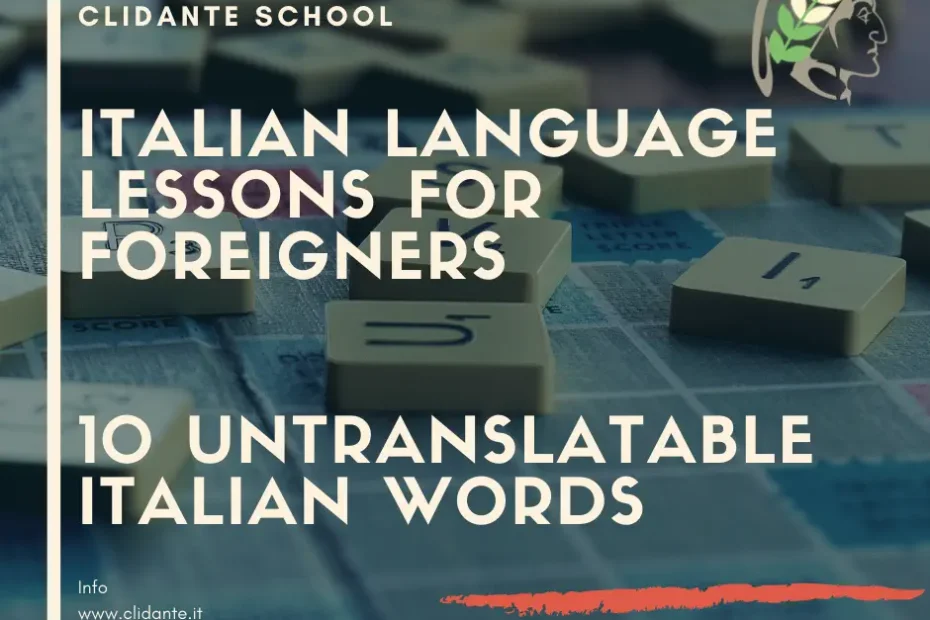Each language has some words that cannot be translated in other languages. In this article we are going to discover 10 untranslatable Italian words. These Italian words haven’t a translation in English, so you need to memorize them and their meanings, because you won’t be able to find a perfect correspondence in English.
10 untranslatable Italian words
Ti voglio bene
When speaking Italian Ti voglio bene and Ti amo are used in two different situations, instead in English you can use I love you in both cases. In Italian you say Ti amo to your girlfriend/boyfriend, while the Italian word Ti voglio bene is used with your friends and family members. In English you use only I love you and the meaning of the phrase derives from the context.
Abbiocco
There isn’t a perfect translation in English for the Italian word Abbiocco, which describes the situation when you have eaten a lot and so you are sleepy. You can translate this word with food-coma, even if it’s not the same.
Tizio, Caio e Sempronio
While learning Italian you may hear the expression Tizio, Caio e Sempronio. This Italian expression is used when you need to talk about some unspecified people. In English you can translate with Tom, Dick and Harry even if this is not the perfect translation.
Magari
In the group of the 10 untranslatable Italian words there is also the word Magari, which can have different meanings in Italian. In English it can be translated with Maybe or with I wish, according to the meaning of the sentence.
E’ una passeggiata
If you translate literally the expression E’ una passeggiata you have to say It’s a walk, but this is not the sense of this Italian expression: this means instead that something is very easy to do.
Boh
The Italian word Boh expresses uncertainty. It can be translated with I don’t know, but it can be used in Italian in many contexts.
Spaghettata
Spaghettata is a typical Italian words and you can use it when you want to say that you’re going to eat spaghetti. There isn’t a translation in English, you have to use spaghettata also when you speak English.
Mamma mia
One of the most used Italian expressions is Mamma mia. You can use this expression to describe many different emotions, for example pleasure, ecstasy, but also annoyance. This means that there’s not a single translation in English.
Apericena
The Apericena derives from the aperitif and is an Italian custom. The Apericena is from 18.00 to 20.00 and it consists of a drink and something to eat: those who choose apericena can have an aperitif and a dinner at the same time.
Dolce far niente
There isn’t an English translation for the Italian expression Dolce far niente, which describes the Italian attitude to live some moments of the day without stress and without doing anything.
